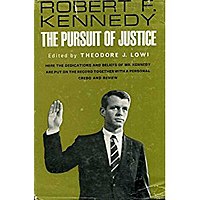
The Kennedy family is an American political family that has long been prominent in American politics, public service, entertainment, and business. In 1884, 35 years after the family's arrival from County Wexford, Ireland, Patrick Joseph "P. J." Kennedy became the first Kennedy elected to public office, serving in the Massachusetts state legislature until 1895. At least one Kennedy family member served in federal elective office from 1947, when P. J. Kennedy's grandson John F. Kennedy became a member of Congress from Massachusetts, until 2011, when Patrick J. Kennedy II retired as a member of the U.S. House of Representatives from Rhode Island.
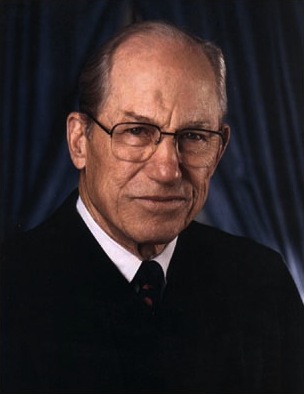
Byron "Whizzer" Raymond White was an American lawyer, jurist, and professional football player who served as an associate justice of the Supreme Court of the United States from 1962 until 1993. By his retirement, he was its only sitting Democrat and the last surviving member of the progressive Warren Court.

Lewis Franklin Powell Jr. was an American lawyer and jurist who served as an associate justice of the Supreme Court of the United States from 1972 to 1987.

Ethel Kennedy is an American human rights advocate. She is the widow of U.S. senator Robert F. Kennedy, a sister-in-law of President John F. Kennedy, and the sixth child of George and Ann (Brannack) Skakel. Shortly after her husband's 1968 assassination, Kennedy founded the Robert F. Kennedy Center for Justice and Human Rights, a non-profit charity working to reach his goal of a just and peaceful world. In 2014, she was awarded the Presidential Medal of Freedom by President Barack Obama.

Robert Francis Kennedy Jr., also known by his initials RFK Jr., is an American environmental lawyer and writer known for advocating anti-vaccine misinformation and public health-related conspiracy theories. He is a candidate for the Democratic Party nomination in the 2024 presidential election.
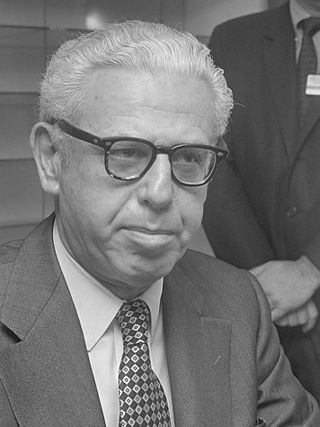
Arthur Joseph Goldberg was an American statesman and jurist who served as the 9th U.S. Secretary of Labor, an Associate Justice of the Supreme Court of the United States, and the 6th United States Ambassador to the United Nations.

John Malcolm Patterson was an American politician. He served one term as Attorney General of Alabama from 1955 to 1959, and, at age 37, served one term as the 44th Governor of Alabama from 1959 to 1963.

Pasco Middleton Bowman II is an American attorney and jurist serving as a senior United States circuit judge of the United States Court of Appeals for the Eighth Circuit.
Roger Jeffrey Miner was a United States circuit judge of the United States Court of Appeals for the Second Circuit and a United States district judge of the United States District Court for the Northern District of New York.

The Marshall Court refers to the Supreme Court of the United States from 1801 to 1835, when John Marshall served as the fourth Chief Justice of the United States. Marshall served as Chief Justice until his death, at which point Roger Taney took office. The Marshall Court played a major role in increasing the power of the judicial branch, as well as the power of the national government.
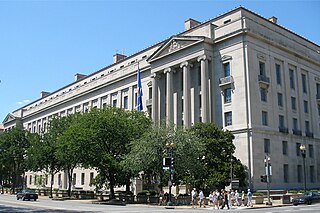
The Robert F. Kennedy Department of Justice Building, sometimes called Main Justice, is the headquarters of the United States Department of Justice. It houses Department of Justice offices, including the office of the United States Attorney General. The building was completed in 1935. In 2001, it was renamed after Robert F. Kennedy, the 64th Attorney General of the United States.
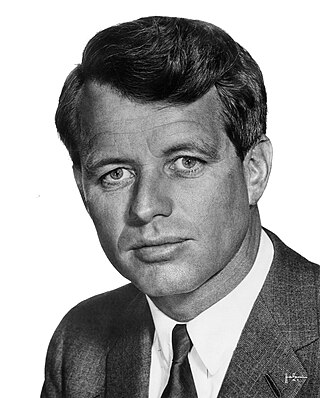
Robert Francis Kennedy, also known by his initials RFK and by the nickname Bobby, was an American politician and lawyer. He served as the 64th United States attorney general from January 1961 to September 1964, and as a U.S. senator from New York from January 1965 until his assassination in June 1968, when he was running for the Democratic presidential nomination. Like his brothers John F. Kennedy and Ted Kennedy, he was a prominent member of the Democratic Party and is an icon of modern American liberalism.
Although he was president for less than three years, John F. Kennedy appointed two men to the Supreme Court of the United States: Byron White and Arthur Goldberg. Given the advanced age of Associate Justice Felix Frankfurter at the time of Kennedy's inauguration, speculation abounded over potential Kennedy nominations to the Supreme Court from the start of his presidency.
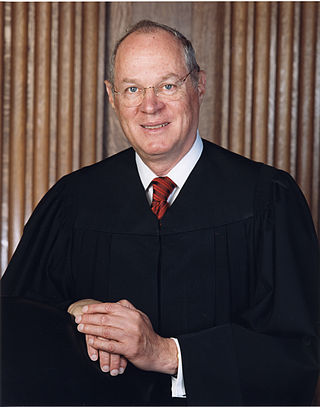
Anthony McLeod Kennedy is an American lawyer and jurist who served as an associate justice of the Supreme Court of the United States from 1988 until his retirement in 2018. He was nominated to the court in 1987 by President Ronald Reagan, and sworn in on February 18, 1988. After the retirement of Sandra Day O'Connor in 2006, he was considered the swing vote on many of the Roberts Court's 5–4 decisions.

Roger Joseph Kiley was an American football player and later a United States circuit judge of the United States Court of Appeals for the Seventh Circuit.
Robert F. Kennedy Human Rights is an American 501(c)(3) nonprofit human rights advocacy organization. It was named after United States Senator Robert F. Kennedy in 1968, a few months after his assassination. The organization of leading attorneys, advocates, entrepreneurs and writers is dedicated to a more just and peaceful world, working alongside local activists to ensure lasting positive change in governments and corporations. It also promotes human rights advocacy through its RFK Human Rights Award, and supports investigative journalists and authors through the RFK Book and Journalism Awards. It is based in New York and Washington, D.C.
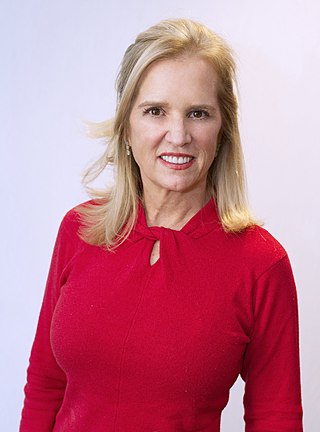
Mary Kerry Kennedy is an American lawyer, author and human rights activist. She is the seventh child and third daughter of Robert F. Kennedy and Ethel Skakel Kennedy. During her 15-year marriage to former New York Governor Andrew Cuomo, from 1990 to 2005, she was known as Kerry Kennedy-Cuomo. She is the president of Robert F. Kennedy Human Rights, a non-profit human rights advocacy organization.
Amy Bach is an American a journalist, attorney, and author of Ordinary Injustice: How America Holds Court, for which she won the 2010 Robert F. Kennedy Book Award. She is the Founder and Executive Director of Measures for Justice, a nonprofit that collects and publishes county-level criminal justice performance data. She founded the organization after she published her book.
Robert F. Kennedy's Law Day Address was delivered on May 6, 1961 to the students of the University of Georgia School of Law in Athens, Georgia. It was his first official speech as United States Attorney General outside the capital, and the first endorsement of the civil rights movement by the Kennedy administration. Kennedy used most of the address to talk about civil rights and how he planned to enforce them. He placed a heavy emphasis on the rule of law and the example the United States would be setting for the international community in the face of communism. Kennedy had spent a substantial amount of time preparing for the speech, which ultimately distracted him from the Freedom Rides that would test his resolve to ensure civil rights in its immediate aftermath.
